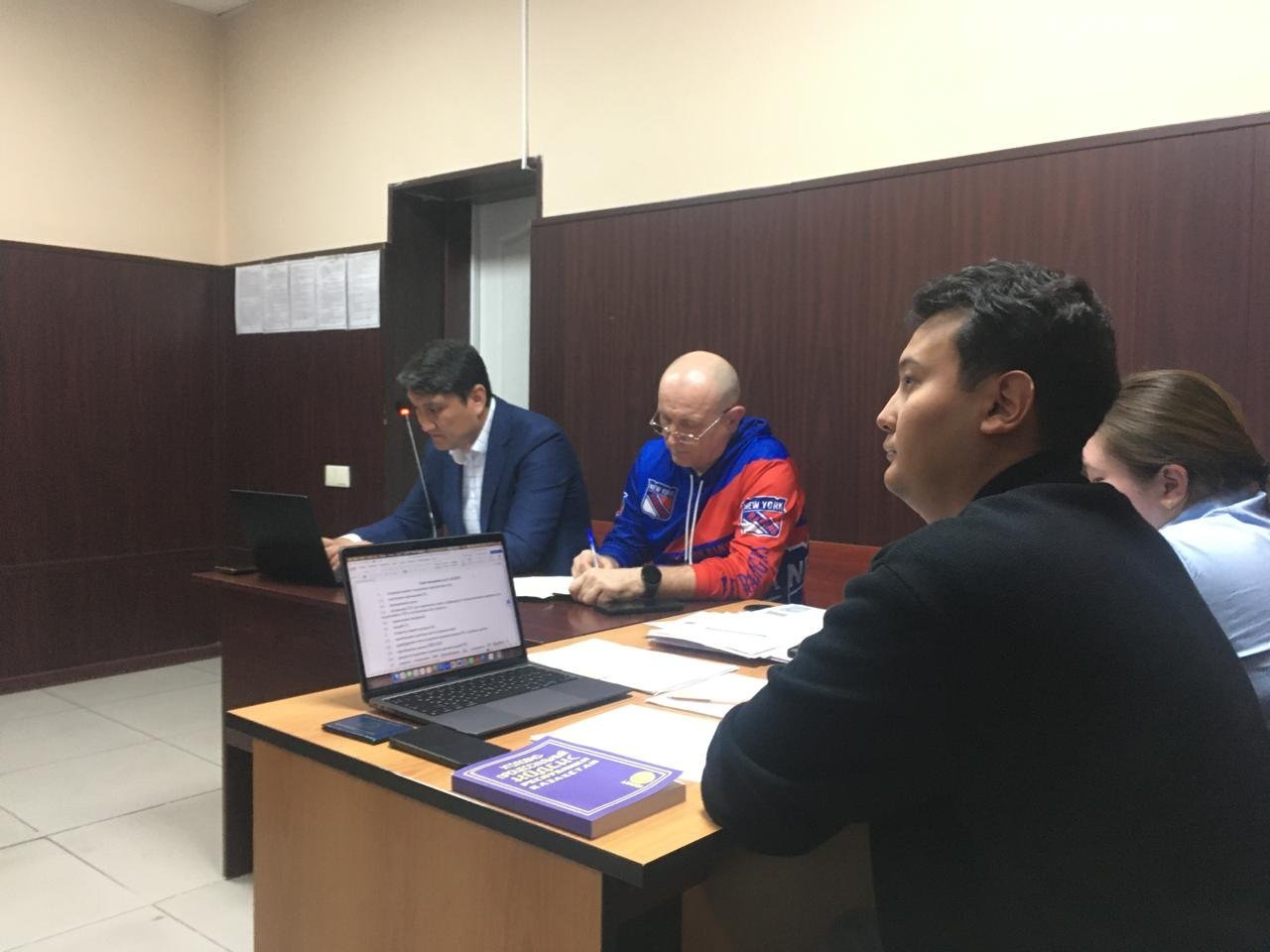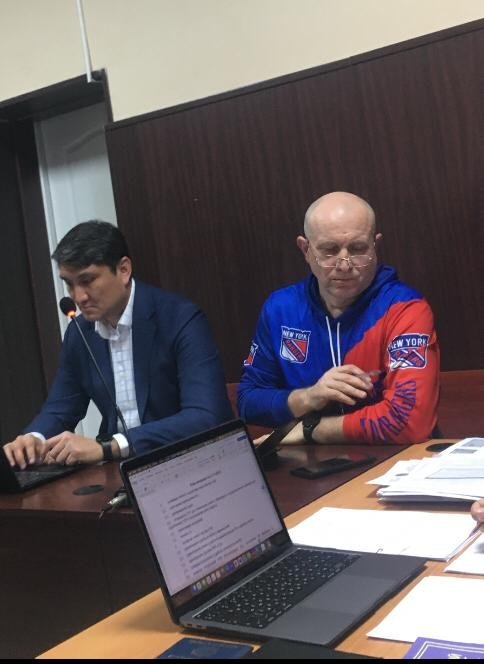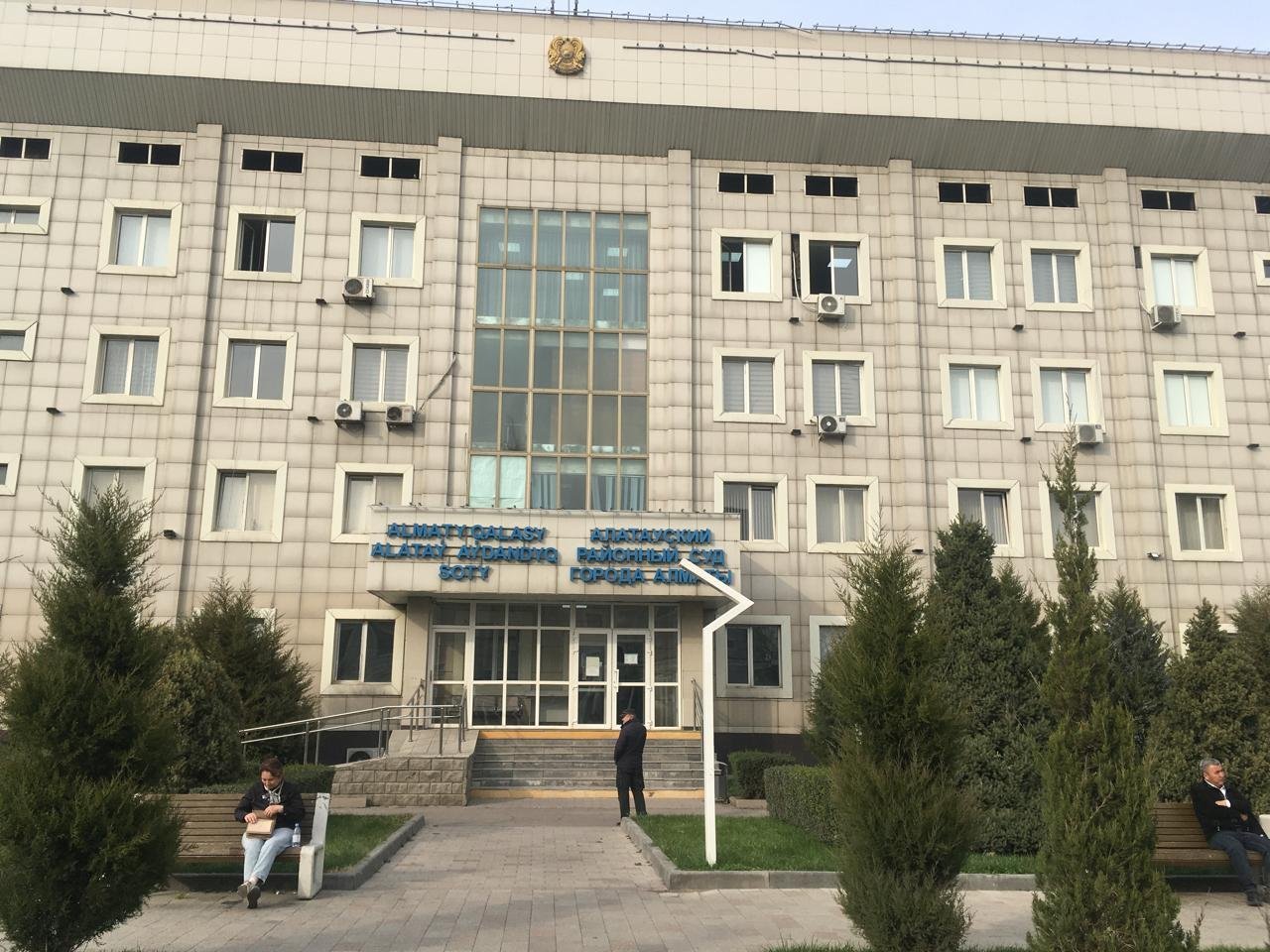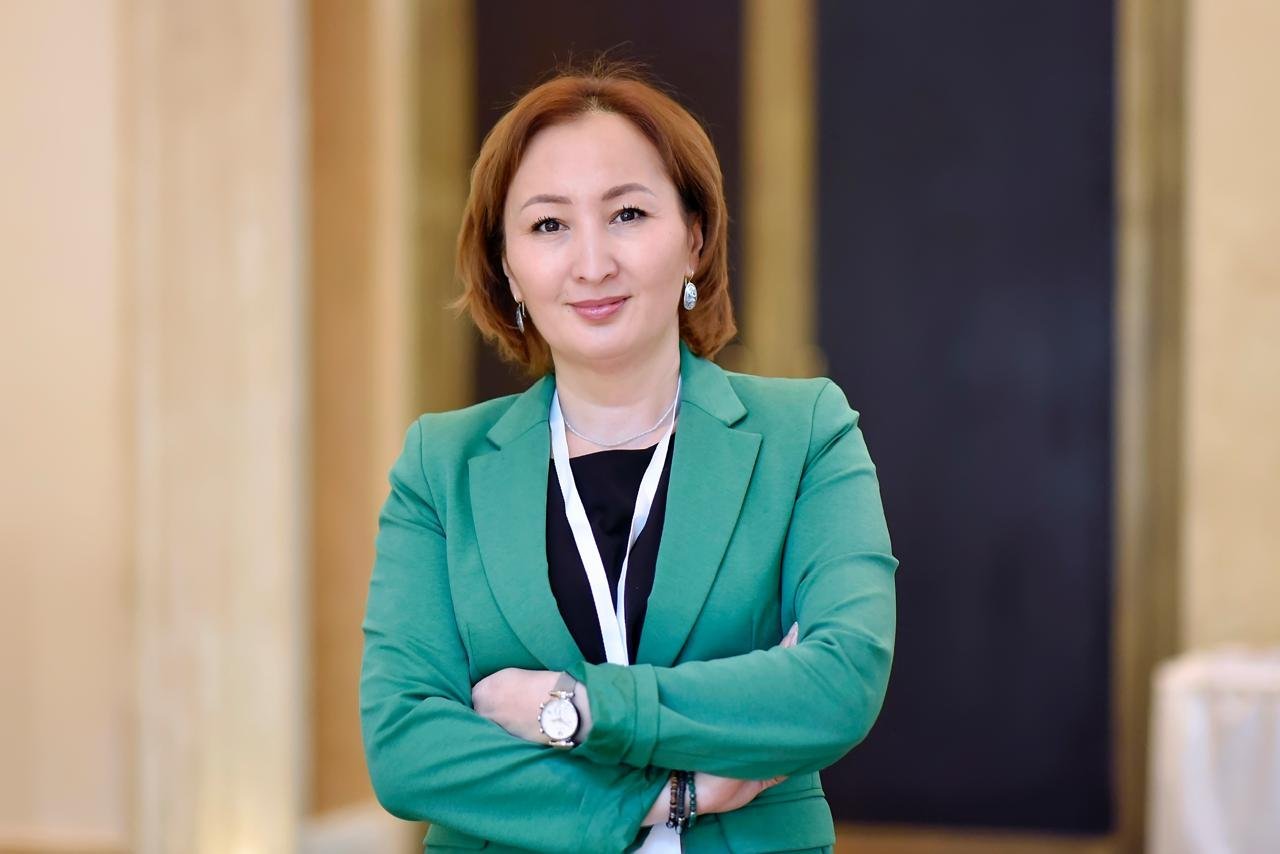Journalist Oleg Gusev Faces Trial for Publishing Open-Source Data
 Photo: Orda.kz
Photo: Orda.kz
A criminal case against journalist Oleg Gusev from Temirtau is being heard in the Alatau District Court of Almaty, Orda.kz reports. He is charged under Part 5, Article 147 of the Criminal Code of Kazakhstan — “Violation of the inviolability of private life and the law on personal data and their protection.”
The charge carries a prison term of three to seven years.
In August 2023, Gusev wrote an article about a conflict between the new owners of the Kenjehan Market in Almaty and the tenant traders. In describing one of the parties, Yelena Sadvakasova, he revealed details said to constitute her private and family secrets — namely, two criminal convictions and two administrative offenses.
Prosecutors claim Gusev acted deliberately to damage Sadvakasova’s business reputation and create a negative image of her in the eyes of others.
The defendant rejects all accusations. He insists he acted strictly within the law, having obtained information about the complainant’s criminal record from the open database of the Judicial Cabinet. Gusev believes this case sets a dangerous precedent — that any investigative journalist could now face criminal prosecution for professional work, triggered simply by a complaint from a dissatisfied subject.
Source of the Case
Gusev’s case was submitted to the Alatau District Court of Almaty in June 2025. It was then transferred by jurisdiction to Temirtau, where the journalist is registered. However, the complainant’s side appealed the transfer, and the case was sent back.
The case is now being presided over by Judge Talgat Davletniyazov. The prosecution is represented by Prosecutor Serik Musarali, while the complainant’s lawyer is Adam. Gusev’s defense team includes lawyers Oralbay and Duisengali.
The judge declared the proceedings open to the public but prohibited filming him personally. The prosecutor and the complainant also objected to video recording.
The complainant’s lawyer joined the hearing online, and could not be asked for comment. Only the defendant and his attorneys permitted photographs of themselves.

Background of The Complaint
The complainant’s grievances stem from two articles by Oleg Gusev published on the Novoye Televideniye (“New Television”) website: “How Oligarchs and the Ministry of Trade Are Depriving Ordinary People of Their Markets and Bazaars” (August 3, 2023) “Kenjehan: Almaty Law Enforcers Try to Jail Three Journalists with the Help of a Marginalized Woman” (July 21, 2024).
In both articles, Gusev mentioned Sadvakasova’s criminal record. The Almaty City Police Department concluded that this violated two Kazakhstani laws — “On Mass Media” and “On Personal Data and Their Protection.” A criminal case was opened.
The official accusation, read in court, stated:
According to Article 21 of the Law on Mass Media, a journalist must obtain a person’s consent before disclosing information constituting personal, family, medical, banking, commercial, or other legally protected secrets. However, Gusev, being an experienced journalist with a large audience on Telegram, Facebook, TikTok, Odnoklassniki, YouTube, and the ‘Novoe’ channel, failed to respect the lawful rights and interests of individuals. With intent to defame the reputation, honor, and dignity of Sadvakasova, he unlawfully disseminated personal data without her consent, the prosecutor read aloud.
What data were in question?
The prosecutor listed them in court:
Yelena Valeryevna Sadvokasova, maiden name Ruchkina, was convicted by the Turksib District Court of Almaty in 2004 to three years and six months in prison for robbery. In April 2010, she was administratively punished by the Almaty Specialized Interdistrict Administrative Court for marijuana possession — ten days of arrest. In August 2010, again for marijuana possession — ten days of arrest. In 2016, she was sentenced by the Alatau District Court to three years’ probation for causing grievous bodily harm to her partner through negligence — stab wounds to the abdomen and chest that injured the lung.
According to the prosecution, by publishing this information without permission, Gusev violated the complainant’s constitutional right to privacy, causing her significant harm: deterioration of health, family tension, bullying of her minor son at school, and contempt from those around her.
Initially, Gusev was charged under Part 4 of Article 147 — but the charge was later upgraded to Part 5, a more serious offense, because the information was disseminated via mass media.
In an interview with Respublika, Gusev commented:
Convicting journalists on such contrived grounds sets a dangerous precedent for freedom of speech. Because then rapists, murderers, pedophiles, and corrupt officials will start filing complaints against my colleagues who report on their crimes based on court rulings. And I’m not even talking about freedom of speech or legality anymore — I’m talking about the complete absence of common sense.
Gusev was not the first journalist to write about Sadvakasova’s criminal record — colleagues Irina Moskovka and Alexandra Alekhova had done so earlier. Citing their reports, his lawyer, Duisengali, has requested that both be called as witnesses to establish their information sources.
The indictment mentions this briefly:
On July 21, 2024, Gusev, while at home in Temirtau, published the article ‘Kenjehan: Almaty Law Enforcers Try to Jail Three Journalists with the Help of a Marginalized Woman’. He disclosed details about Sadvakasova without her consent and shared links to earlier publications — including one by journalist Alekhova, in which Sadvakasova was described as a representative of one of the world’s oldest professions.
On April 9, 2025, a linguistic expert analysis was conducted, though the prosecutor did not specify whether it examined Gusev’s article or Alekhova’s.
Reading the report, the prosecutor cited:
The semantic meaning of the phrase ‘registered with the police as a representative of the oldest profession’ is understood as ‘included in the list of individuals registered by law enforcement as women engaged in prostitution.’ The overall intent of the publication is to inform a wide audience about the negative activities of Yelena Valeryevna Sadvakasova. The publication also uses the word ‘khabalka’ (a coarse, slang term meaning a rude, loud, or vulgar woman – Ed.), which is expressed in an indecent form and carries an offensive meaning toward the honor and dignity of Sadvakasova.
Sadvakasova accused the media of biased, one-sided coverage of Gusev’s case and complained of social-media trolling.
She requested a closed trial:
I filed two motions, one asking for the trial to be closed, because I am bullied online. Journalists write without knowing the full truth of the criminal case or the trial. They draw premature conclusions that poor Gusev was unfairly imprisoned and that the prosecution fabricated the case.
She insists that the journalists obtained her criminal records from a restricted database:
Your Honor, we all know this information came from a closed Interior Ministry database. It caused me enormous harm. I tried to hang myself twice. I’m terrified. My child is bullied at school. Now my personal and family data will spread all over Kazakhstan. Please don’t drive my family to the edge. This is my life, my secret!
Both the prosecutor and the complainant’s side pressed for the proceedings to be closed, citing the sensitive nature of the testimony and the involvement of Sadvakasova’s minor son.
The judge, however, denied the request, declaring the process open and allowing journalists to record audio on their phones.
Freedom of Speech at Stake?
Oleg Gusev maintains his innocence and says the charges are vague:
I don’t understand the accusation. Let the prosecutor explain what exactly in my publications constitutes personal or family secrets. He didn’t cite any laws prohibiting journalists from using data from the Judicial Cabinet (online judicial information platform - Ed.). There’s no such restriction. I’m not guilty and will seek full acquittal.

His lawyers immediately petitioned for the case to be dismissed, arguing that Gusev’s information came from the official open-access database of the Supreme Court. Since the materials were public and marked with no restrictions like “not for publication,” there was no violation.
My client, Gusev, is an authorized user of the Judicial Cabinet. He acted lawfully, using information that the state had already made public. Therefore, these circumstances indicate no elements of a criminal offense in my client’s actions. He was carrying out his legitimate professional duties as a journalist and published publicly available data, including details about Sadvakasova’s personal life contained in court rulings. I ask the court to terminate the criminal case due to the absence of any criminal offense in my client’s actions,
said lawyer Oralbay.
The defense emphasized that freedom of speech and transparency in the country are guaranteed by the Constitution, as well as by the laws 'On Mass Media' and 'On Personal Data and Their Protection.'
No one, the lawyer argued, has the right to forbid a journalist from publishing articles on any topic — except in cases involving the protection of state secrets.
As an experienced journalist, Gusev verified all information about Sadvakasova’s criminal record before publication. He did not add anything beyond the facts and did not use any insider or unofficial sources.
Lawyer Duisengali added that he independently verified Sadvakasova’s convictions through official judicial requests, obtaining copies of four court decisions — confirming the information Gusev had used. He asked the court to attach these materials to the case file.

He also submitted inquiries to the Information Security Committee and the Information Committee of the Ministry of Culture, requesting clarification on the legality of journalists using public data. One reply, read in court, stated:
On June 12, 2025, Acting Chair of the Information Committee of the Ministry of Culture, Ismagul, provided me with an official statement confirming that the Judicial Cabinet is an official online portal designed to ensure transparency of judicial information. According to Article 66 of the Law on Access to Information, court rulings must be published on the websites of the courts, except in cases where a ruling is classified as closed to public access. A journalist has the right to collect information from open sources, including the Judicial Cabinet, provided the legislation on personal data protection is observed. If information about a person’s criminal record appears in judicial acts that are publicly available, such information may be lawfully used in journalistic materials.
The defense also requested that open hearings be livestreamed on YouTube via the Supreme Court’s channel to ensure maximum transparency and public oversight, as was with the Bishimbayev Trial.
Gusev supported the motion, saying:
This concerns the entire journalism community. If they convict me, any reporter who writes about court rulings could be prosecuted next.
State Prosecutor Musarali asked the court to deny the defense's motion, as he saw no grounds for broadcasting the Gusev trial online.
Sadvakassova also objected to the video broadcast of the trial.
Esteemed court, participants in this trial! I am not Bishimbayev. I did not kill anyone; I lived my life. I am married, have a family, and children. I encountered lawlessness at the market and stood up for the people. Because of this, I was bullied. You have already allowed journalists to participate in the trial. I ask that you deny this motion, as I consider it unnecessary. The trial will be controversial when Kim and Mamushina (the new owners of the market – Ed.), who harassed the people, and their journalists, are in the dock. Then I know there will be a stir. Please do not harass me.
The judge immediately asked who was harassing her in court.
Sadvakassova again stated that she was suffering from attacks from journalists, but the judge interrupted her with the question, "Is someone harassing you in court?" She again began citing personal and family privacy, but the judge interjected, saying she was repeating herself.
Ultimately, the judge denied the livestream request, citing a lack of authority to organize online broadcasts.
Journalists are still allowed to record audio and video.
During the hearing, a dispute also broke out between the judge and the prosecutor after the judge pointed out that the indictment’s wording was legally incorrect.
The prosecutor had used the word “or” (“либо”) instead of “and” (“и”) when describing two connected charges, prompting the judge to postpone the session and order a correction, despite the prosecutor’s protest that he lacked time to revise the document.
The next session was scheduled for 11:00 a.m. the following day.
A Disturbing Signal
Since Gusev’s case directly affects press freedom, Orda.kz asked Gulmira Birzhanova, head of the Legal Service of the Legal Media Center, for comment.

The Gusev case is an alarming signal for Kazakhstani journalism. If the use of information from open sources becomes grounds for criminal prosecution, the public’s right to information and freedom of speech will be placed at serious risk. There is such a thing as permissible content — and if journalists are left uncertain about where that boundary lies, it will create a climate of intimidation. Newsrooms and reporters will begin to practice self-censorship, fearing accusations for using personal data even when it comes from official sources.
During the investigation, Gusev’s charge was reclassified from Part 4 to the more severe Part 5 of Article 147, even though it had been clear from the start that he disseminated information about the complainant through mass media.
When asked what might explain this escalation, Birzhanova said:
It looks like a selective approach by law enforcement, given that Gusev worked on investigative reporting. I think people forget that a journalist acts in the public interest, not out of revenge. And then there’s the issue of proportionality in such cases. Let’s recall the case of Daniyar Adilbekov, the journalist sentenced in October 2024 to four and a half years in prison for allegedly ‘spreading false information and making a false corruption report.’ I hope a new punitive tool against journalists doesn’t appear in the growing collection of criminal articles used against them.
Both the prosecution and the defense in Gusev’s trial referred to the law 'On Personal Data and Their Protection.'
When asked which clause explicitly allows the use of personal data without a subject’s consent, Birzhanova explained:
That’s Clause 6, Article 9, titled ‘Collection and Processing of Personal Data Without the Subject’s Consent.’ It states that personal data may be used ‘in the lawful professional activity of journalists and the work of television and radio channels, print publications, news agencies, online media, or in scientific, literary, or other creative activity — provided that the legislation of Kazakhstan ensuring human rights and freedoms is respected.’ In my opinion, such cases cannot be considered an intrusion into private life, since the information had already been made public by a government body. An invasion of privacy would only occur if data were obtained illegally or without legitimate public interest. In this case, I believe Oleg Gusev acted within the law.
Asked why officials now so often invoke “personal data protection,” Birzhanova added:
In recent years, the topic of personal data protection has become a kind of trigger for me. Local authorities often use it as a pretext to withhold information from journalists, and it has become a routine practice. At the same time, when it comes to data leaks affecting ordinary citizens, we see no such protection at all.
Original Author: Maira Uvaliyeva
Latest news
- Damaged Baikonur Launch Pad Facility Restored After 2025 Collapse
- A Rare Black Melanist Wolf Was Shot in Eastern Kazakhstan
- Kazakhstan Maintains Neutral Stance on Middle East Escalation
- Kazakh MFA: Citizens Evacuated from the Middle East via Oman and Saudi Arabia
- Kazakhstan to Spend 4.6 Trillion Tenge on Road Projects Through 2029
- Central Asia Competes for the Skies: Why Kazakhstan Risks Falling Behind Uzbekistan on Jet Fuel
- The War in Iran Opens a Window of Opportunity for Kazakhstan’s Oil Sector, Analysts Say
- Iran Conflict Escalates Beyond the Gulf: What Kazakh Experts Say About Risks for Central Asia and Kazakhstan
- Kazakhstan Prepares Possible Evacuation of Its Citizens From Iran
- LRT in Astana Is Reaching the Finish Line: The Launch Is Expected in the Coming Months
- Kazakhstan Ready to Help the UAE Amid Escalation in the Region
- Tokayev Discusses Middle East Escalation With Qatar’s Emir
- Airlines Ready to Bring Kazakhstanis Home From the Middle East
- Tokayev Sends Support Messages to Gulf Leaders Amid Regional Escalation
- Kazakhstan Bans Its Airlines From Flying Over Several Middle East Countries
- Astana Strengthens Security Measures Amid Escalation Around Iran
- Tokayev Meets U.S. Ambassador Stufft, Discusses Board of Peace Cooperation
- Mangystau Launches AI-Assisted School Monitoring to Prevent Teen Suicidal Behavior
- Kazakhstan to Supply UK With Critical Minerals
- AI Faculties for Educators to Open in Kazakhstan: What Other Changes Are Coming to the Education Sector

